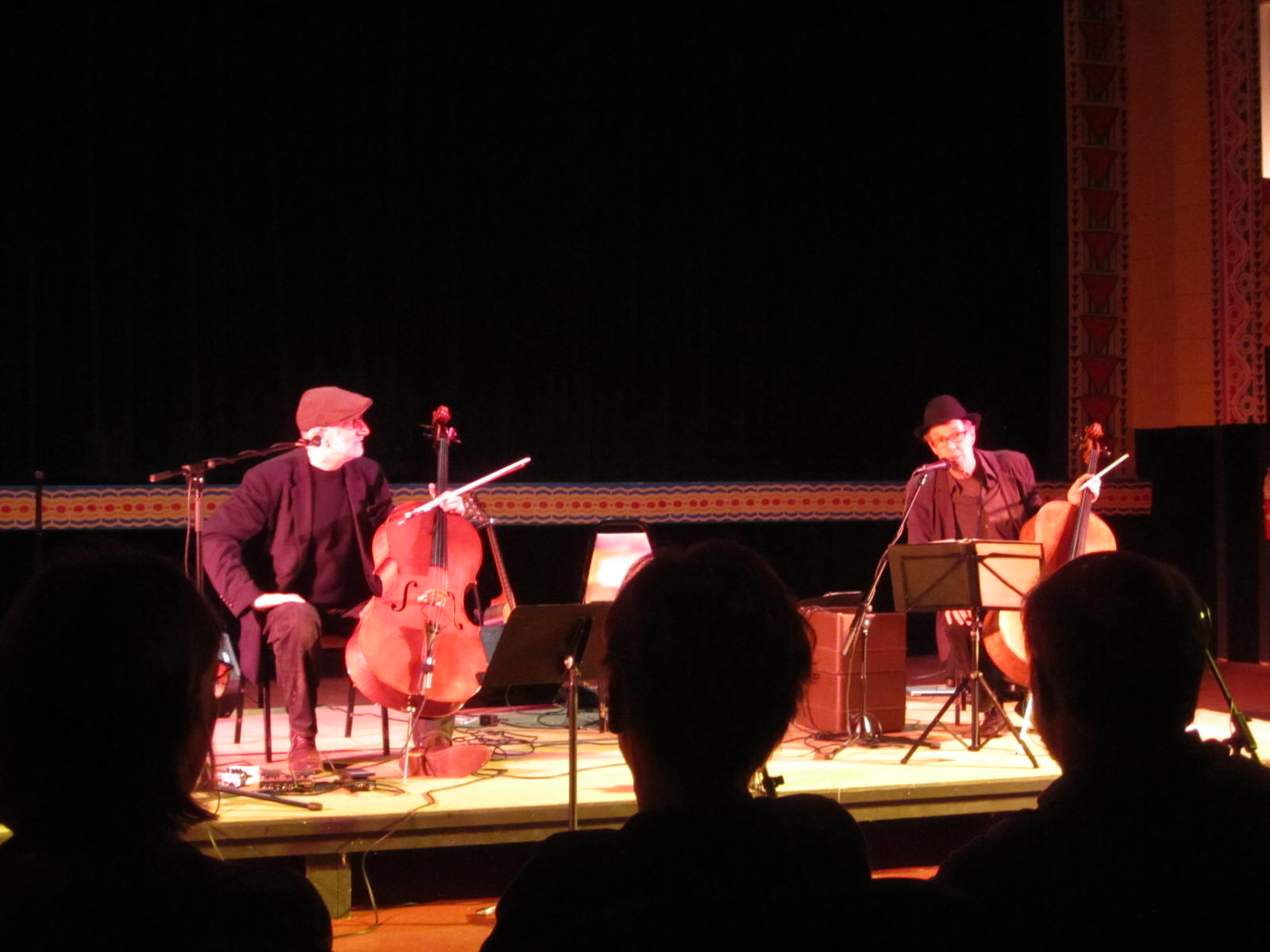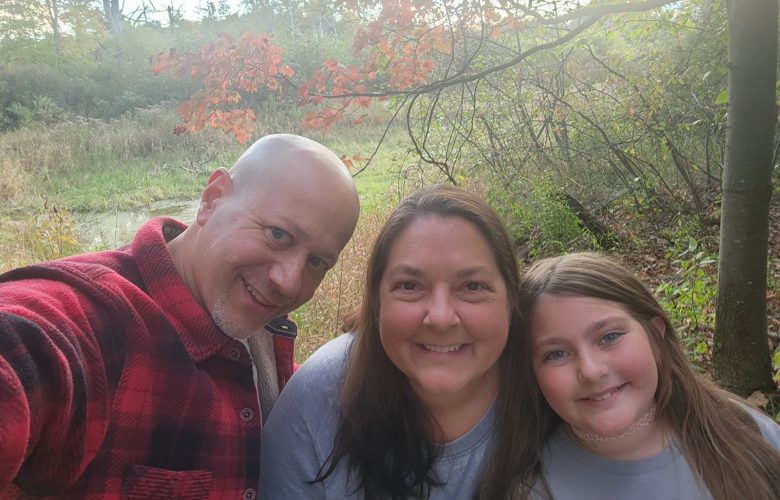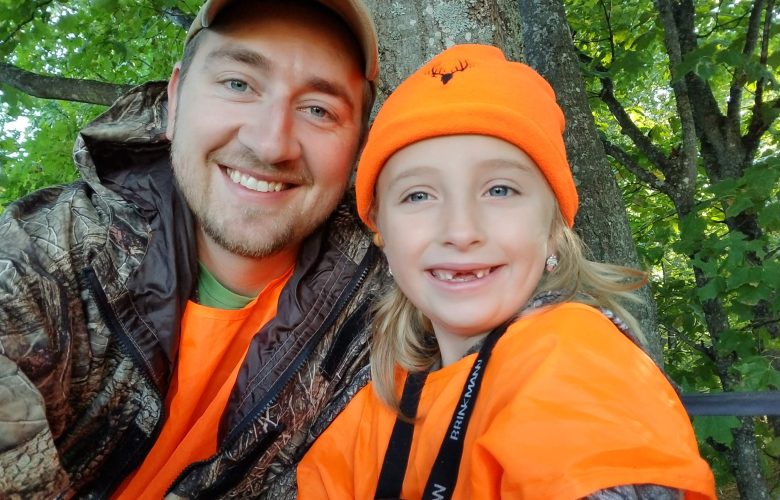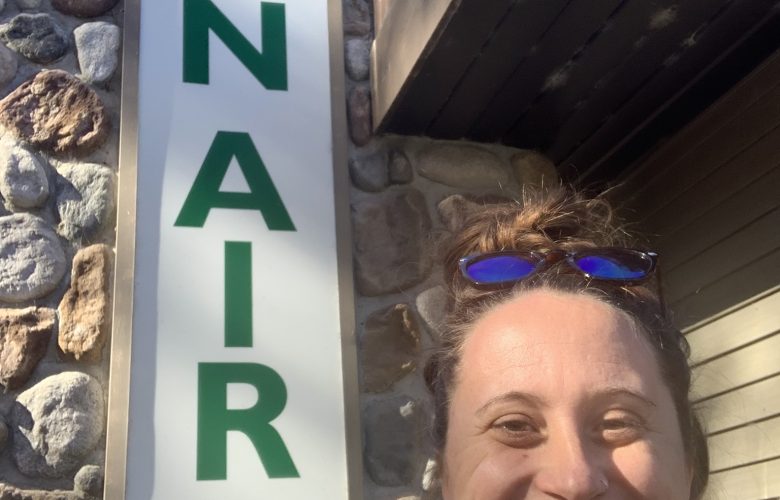Two Cello, Two Friends, Two Nights at The Garden Theater
On June 21, Two Cellos, Two Friends, Two Nights was a unique jazz and blues collaboration of two virtuoso cellists, Vermont-based Eugene Friesen and Benzie County’s own Crispin Campbell. The performance broke from the stereotypical image of a cello concert – very serious, full of classical music – to include a variety of musical styles, much of it improvisational and experimental, as well as glimmers of humor embedded in their music.
From the hard-edged tango rhythms of Bossa Nova, a genre of Brazilian music, to the rhythmical interplay that was inspired by a Zimbabwean beat, Friesen and Campbell took the audience on a global tour that also included Egypt, Japan, and California.
Teeming with grooving, emotional, sparkling, and sometimes outrageous rhythms, their performance wowed the audience from the beginning set. Friesen and Campbell – accompanied by “two friends,” one playing a viola and the other a guitar – began Saturday’s performance at The Garden Theater with Bach’s Cello Suite No. 1-Prelude. They followed up with the famous American folk song The Water Is Wide, a tribute to the recently deceased Pete Seeger. The transition between these stylistically very different songs was smooth, yet playful.
Next they played a piece, composed by Friesen, that honored the life of a moose. At one point in the evening, while Campbell played laid-back blues music, Friesen created beats by colliding two cow bones as if he was playing a drum. When they played a song that Friesen said was inspired by an Arabic rapper, their fingers moved so fast and freely that it was as if their cellos were part of their bodies.
Later came the most heartwarming moment of the night, when the duo played a song based on a mother whale that Friesen had seen in the ocean off of the California coast. The two played their cellos gracefully with a recording of whales. At the end of this sacred and elegant song, they each pulled the squeaky sound of a whale out of their cellos by dragging their fingers from the head to the tail of their fingerboards.
Friesen and Campbell played through a give-and-take style, free of standardized techniques and styling, which let the audience think beyond the ordinary perspective, leading to more imaginative visuals to go along with the impromptu sounds being heard. The musicians scratched, flicked, plucked, bowed, and even played without a bow.
Since Friesen traveled frequently – he has taught music workshops around the world – the concert was highly influenced by nature, as well as different places and cultures. His cello playing for nature and animals is related to his active involvement in Paul Winter Consort, an American music group that is led by Paul Winter. This group’s distinct sound is based on them mixing jazz, classical music, world music and ecological music, which is altogether called “Earth music”. On Friesen’s trips, he was inspired by the interactions that he had with other musicians from different backgrounds and cultures. Friesen also sang haunting melodies during to enlarge the depth of pieces as his voice rose and fell with the cellos. Campbell, who has traveled to and taught music in Colombia, showed sad and dramatic melodies of gypsy, jazz, and tango ballads.
It was impressive to hear a variety of music genres, a form of indirect storytelling of both men’s journey through cello playing. The “two friends” lent the delicate sounds of the viola that contrasted well with the dark and deep sound of cello and the guitar’s distinctive acoustic sound that combined well with the cello’s Romani music.




